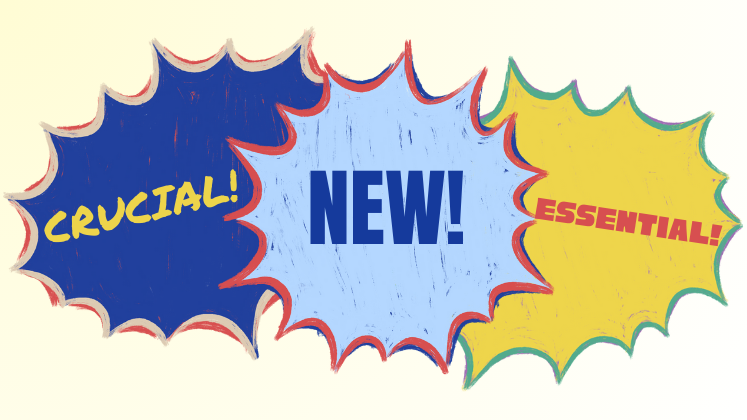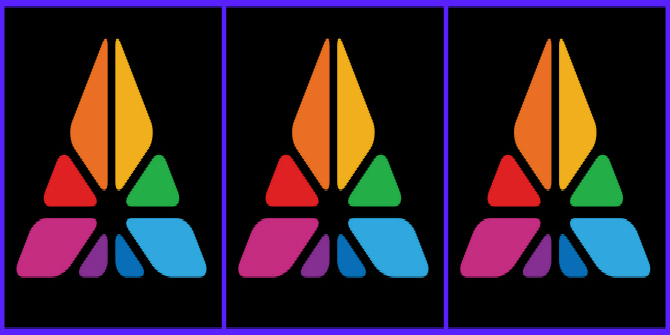 Laura King and Gary Rivett find that the RCUK’s top-down, paternalistic approach to understanding impact may compound relationships with non-academic partners, rather than facilitate fruitful exchange. A ground-up approach to impact that takes into consideration wider project ownership and expertise of non-academic partners may yield greater creativity and lasting partnerships.
Laura King and Gary Rivett find that the RCUK’s top-down, paternalistic approach to understanding impact may compound relationships with non-academic partners, rather than facilitate fruitful exchange. A ground-up approach to impact that takes into consideration wider project ownership and expertise of non-academic partners may yield greater creativity and lasting partnerships.
Universities today are constantly finding new and exciting ways of engaging with the world beyond the campus. Overall, new impetus to work with partners outside the university and members of the public is a good thing. Yet the current focus on maximizing the ‘impact’ of our research is at times problematic. Our own experiences of public engagement and collaboration are indicated by our title; simultaneously a play on ‘public history’, and a glance towards a ‘history from below’ perspective on the past, it is a particular model we have pursued when working with non-academic partners. In particular, we’re thinking here about the Stories of Activism public engagement project at the University of Sheffield, and a project on fatherhood at the University of Warwick entitled Hiding in the Pub to Cutting the Cord? While far from being the only way to work with publics outside of the academy, we think our model of collaboration provides a critical perspective upon some of the more troubling aspects of the current so-called ‘impact’ agenda.

When Gary has spoken with activists over the past couple of years, the problems of ownership and defining the purpose of the Stories of Activism in Sheffield, 1960-present [SOA] project are frequently raised. When the project started, there were vague notions of what it would do and it sounded feasible: collect oral histories from activists, and archive campaign materials. From the outset we were careful not to assume that everyone would agree. It was only in conversation that one of the core principles of the project emerged: we needed to develop partnerships with local organizations, and offer opportunities and spaces for people to learn skills that they could use to collect their own stories, taking control over the process of learning, training, collecting stories and creating materials.
Gradually, it has become SOA’s core principle, generating enthusiasm among local activists and non-activists to start making their own history. Perhaps it is to be expected that activists might raise the issues of power and control. But it does bring into a starker light one of our central critiques of the impact agenda. How far should we walk the pathways of impact as laid out by Research Councils UK [RCUK]—an essentially paternalistic, top down approach to assessing whether a project will have value and relevance? Before SOA started it would have been difficult to define or assume the value and/or relevance of the project’s work without first discussing its intentions with anyone it might touch. SOA is wary of assuming that the project is having any impact, or that there is a way to plan for it. To do so would be to reproduce the assumptions underpinning a paternalism which sometimes foregrounds research imperatives ahead of working with local community groups.
There is another level to this potential paternalism that needs to be addressed. In resisting being told how to do things from those above us within the university, research councils and government, we should also be wary of doing the same when we’re working with those outside the academe. It’s easy to fall into the trap of thinking that universities and researchers are the experts; yet the most exciting and productive collaborations emerge from conversations and moments in which different types of expertise come together and the resulting partnership becomes more than the sum of its parts.
Such ideas have also emerged from Laura’s experience of working with a theatre company, Babakas, on a production about fatherhood, which started as part of her Hiding in the Pub to Cutting the Cord? project and has continued since. In this very different type of collaboration, it also became clear that the most meaningful engagement would emerge from opening up the processes, approaches and methodologies involved in creating both research and theatre. It is not the exchange of knowledge that is most effective in this case of a history or arts and humanities project, but the use of conversations to question the very foundations of how we practise within a professional sense. For the theatre company, this meant a new appreciation of the value of doing their own research (including reading up on the topic and conducting interviews) as a part of their creative process, something that will have a much longer legacy than our partnership alone. But this goes for both the researcher involved and the creative partner; this sort of engagement should be about a two-way exchange, rather than one way dissemination, and about intellectual questioning rather than a focus on knowledge alone.
Paradoxically, perhaps, the current focus on achieving research impact that offers new possibilities for collaboration and has allowed us to pursue our individual projects can also limit innovation. It leads us into a focus on a more one-way form of dissemination from research to public(s) and those parts of partnerships that are measurable in terms of impact. Yet, in our view, it is necessary to move towards a much broader understanding of the relationship between researchers and those outside the university, and an acceptance of diverse models of working with a diverse range of publics and partners. Indeed, we should be encouraging a refocusing away from the end-product of ‘impact’ to the process of ‘making history’ and the critical reflection that enables. We have the opportunity to establish a new way of thinking here—let’s not create a system of recognition that rewards those who simply know how to tick the boxes. Instead, we need to celebrate those projects that focus on genuine collaboration and innovation in terms of dialogue and exchange in terms of knowledge, skills and ideas.
This is something we plan to write about and publish on in the future, so whether you’re a researcher, someone who’s worked with a university, or a member of the public, we’d be really interested in receiving your comments below.
This piece originally appeared on the University of Sheffield’s History Matters blog (26 June 2013).
Note: This article gives the views of the author, and not the position of the Impact of Social Science blog, nor of the London School of Economics.
Laura King completed her PhD at the University of Sheffield in 2011 and is now a Research Fellow at the University of Leeds. As well as researching the history of fatherhood, she works on Arts Engaged, which aims to develop innovative partnerships between universities and those beyond the campus. You can find her on twitter @DrLauraKing.
Gary Rivett is a Postdoctoral Research Associate in the Department of History at the University of Sheffield. He is a director of Stories of Activism in Sheffield, 1960-present, and has research interests in the history of Early Modern Britain, particularly in historical writing, political engagement, peacemaking, and parliamentary archival culture.









The paternalistic, top-down “maximisation” approaches to impact really need to be seen as the product of the accountability drivers that produced them. The impact agenda is not an uncontestable monolith. Debates on public engagement seem to be moving towards a more critical understanding of how a sense of human value can be maintained in an era where the pressures to demonstrate extra-academic influence are many. Impact’s current iteration for the REF will likely be seen as anachronistic come 2019. A more critical vision of engagement, influence and open access may emerge so your timing is good.
I found your perspective interesting as I am about to embark upon PhD field research within time banks. Time banks are community groups which facilitate exchange between people where one hour of everybody’s time and skill is valued equally. I intend to become a member of the time banks and to value an hour participants’ time as equal to my own by offering an hour of my own time in exchange. I hope to achieve a levelling of the power relationship in order to capture what is really going on. I also hope to gain more in depth insight by becoming part of the process, and to be open to what I might find rather than proscribing the results. Thank you for your article
I read your article with great interest, as I am just about to finish the last part of a master degree, it made me reflect on my recent academic research and studies while conducting my own dissertation project, exploring empirical facts and situations from a number of business practical perspectives, reflecting on those with analysis, comparisons and findings. These in turn are to be extracted and refined, on the way to being transformed into reliable academic hypotheses and theories for the benefit of academia in defining better solutions for principles in practices.
Of course, this is all interesting and illuminating, however, as I am about to hand in my final paper, it made me wonder how much in fact organisations and the world of everyday business is actually making the most out of the learned research and knowledge of the academic world? Are the essence of results and findings truly taken advantage of on a much wider scale in public and private institutional business? How close are hypotheses and ground breaking theories being implemented on the ground in corporate management practices and included in business strategies?
In a highly digitalized world where a hybrid virtual life is taking hold in every facet of our existence, realities are still being faced on the streets. This leaves us wondering how much is actually taken on board in achieving better decision-making, impacting positively on the quality of life lived, and as such, the value given to each person as employee or employer; as teacher, student or worker; a benefactor, consumer and end user. After all, as contributing citizens we are all stakeholders here! After elaborate seminars and extensive work done during organised conferences in open dialogues and concrete follow up between the two social and intellectual giants (i.e. corporate and academia), it really all depends on how far would the problematic urgencies explored, and the solutions proposed, be taken further and beyond the hype of the moment, once the chairs forming the panel turned empty and cold.
These days a paternalistic approach would be very hard to maintain. In fact, it is no longer viable as knowledge and know-how is far from being the privilege of the few in our fast connective highly informed digital world. And the more we know, the more we start to question these days! The idea is that the questioning on any side should be kept open to constructive debate and further engaging exchange. Efforts from both sides, business and academia, are certainly needed in keeping tight links, extended connections and ongoing collaborations in open dialogues. These are indeed vital, should the world along its citizens truly benefit from each and every profitable creation unique discipline and skilful specialisations. These would be fuelling further academic research and business growth, minimising errors made in damaging business entanglements and bad practices; thus better supporting and encouraging proactive, inclusive and joint work done at every level in building true progress for the 21st century.
With much better equipped, learned, efficient, and engaged future generations on the road to economic sustainability, leading collectively towards national prosperity should definitely be a joy to celebrate with the many rather than the few.